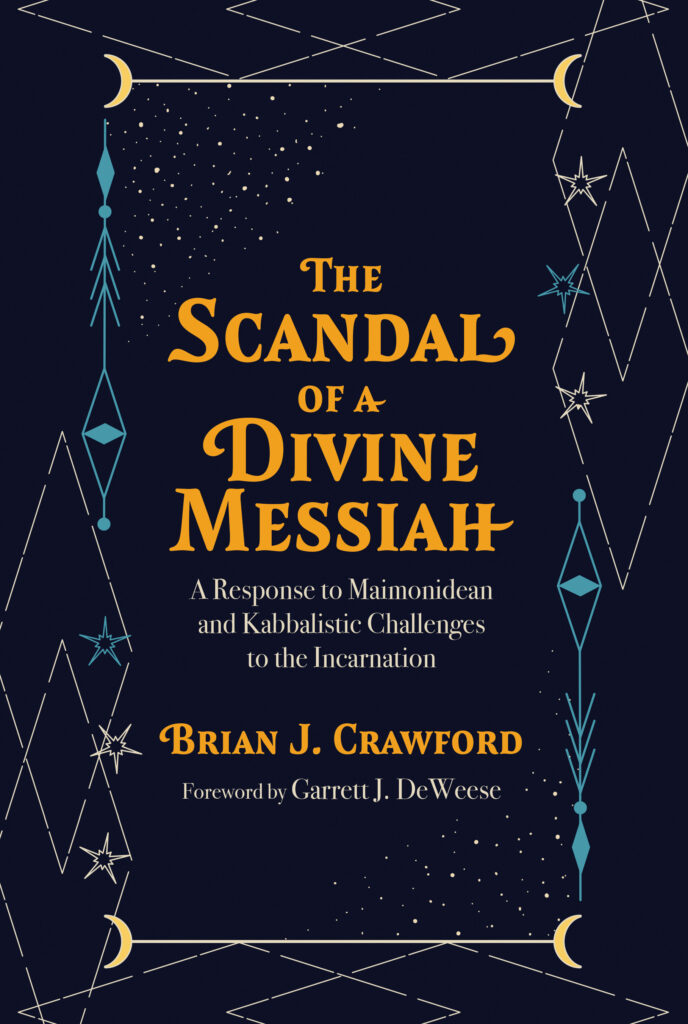1. What is the “Scandal” your book refers to?
A: The idea that God could become a man is a non-starter in the Jewish community, even a scandalous and taboo subject to consider. My book tells the story of how the idea became a scandal in Jewish theology, and how to recontextualize the idea as a Jewish notion—and one that has actually happened in history with Jesus of Nazareth.
2. Why is the deity of Jesus such a scandal from a Jewish frame of reference?
A: Although the bad history of Christian-Jewish relations is a major factor, Jesus’s deity is rejected as an option in Judaism for theological and philosophical reasons as well. The Jewish philosopher Maimonides makes a strong argument that divine embodiment and the Trinity are impossible and absurd notions, contradicting basic logic. The Kabbalistic tradition sidelines Jesus’s deity by asserting that all things are divine, only differing in degree of divinity. Thus, to make a claim that Jesus is uniquely God in the flesh runs against both influential Jewish theological streams.
3. Yet you still think that belief in Jesus’s deity ought to be kosher for Jewish people?
A: Yes, for both historical and theological reasons. My book describes how Jewish theology used to be much more friendly to viewing God in quasi-Trinitarian and quasi-Incarnational ways. In fact, many Jewish scholars today believe the Trinity and Incarnation are Jewish ideas that were anticipated in pre-Jesus Judaism. I also think the major objections provided by Maimonides and Kabbalah in the Middle Ages are unsuccessful, thus paving the way for the theological model espoused by the Jewish authors of the New Testament.
4. Is this book just for Christians?
A: No. While Christians affirm that God became a man as Jesus of Nazareth, this book stays within a Jewish frame of reference for most of the way through. While I know that I will have Christian readers, I wrote it primarily with Jewish people in mind, and that includes Messianic Jews. I believe the idea of Jesus’s divinity can be justified from within Judaism, and that I do not need to appeal to the New Testament in order to show that the competing theological models provided by Maimonides and Kabbalah are unsuccessful.
5. What led you to write this book?
A: I lived and served in an Orthodox Jewish neighborhood in Brooklyn for nine years with Chosen People Ministries, a mission to the Jewish people. During that time, I had many interactions with Orthodox Jewish people about belief in Jesus. The conversations often left me confused, as I was unfamiliar with Maimonidean and Kabbalistic thought. In my doctoral studies I came to see that philosophical thought is extremely important for religious Jews and Christians to understand each other. This book tells the story of why belief in Jesus’s deity is a robust option that withstands Orthodox Jewish criticisms.
6. How does this book contribute to current scholarship?
A: As far as I am aware, this is the first book by a Christian scholar that provides a deep assessment of Maimonidean and Kabbalistic theology. For example, I interact heavily with The Guide to the Perplexed and Kabbalistic manuals while staying in conversation with the Christian theological tradition. I stand on the shoulders of many Maimonidean and Kabbalist scholars who have provided thorough analyses for Jewish readers. My book is unique in that it integrates both Jewish and Christian scholarship on the Incarnation, Maimonides, and Kabbalah, putting the worldviews in conversation with each other.

